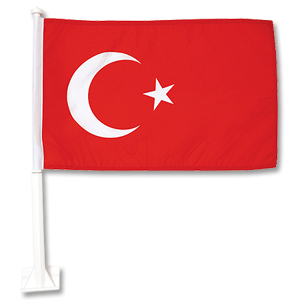Turkey After the Elections: A Deadlock in the Kurdish Opening?
 Earlier this month, Prime Minister Recep Tayyip Erdogan's Justice and Development Party (AKP) ended up with less than 330 MPs out of 550 in the Parliament, short of the "super-majority" which would enable the AKP to amend the Constitution without resistance.
Earlier this month, Prime Minister Recep Tayyip Erdogan's Justice and Development Party (AKP) ended up with less than 330 MPs out of 550 in the Parliament, short of the "super-majority" which would enable the AKP to amend the Constitution without resistance.
Meanwhile, the imprisoned leader of the outlawed Kurdistan Workers Party (PKK), Abdullah Ocalan, declared that passive resistance, rather than armed conflict, would continue if two conditions were met: a halt to Turkish military operations and engagement with his leadership, reaching out to the militants and urging them to accept a democratic solution.
Both these headline developments are now accompanied by other manoeuvres.
The Supreme Election Board (YSK) and Turkish courts have blocked three deputies of the Peace and Democracy Party (BDP) from taking up their posts.
Ayhan, Yildirim and Dicle all have terrorism-related convictions and have been accused of being members of the Union of Communities in Kurdistan (KCK), considered “illegal” because of its interaction with PKK elites and BDP representatives.
Following the latest decision of the Supreme Election Board --- which initially vetoed 12 applicants, including six backed by the BDP, before the election --- all 36 independent MPs decided not to go into the Parliament if they cannot take part as a bloc. AKP, which has denied involvement in the Board's decision, has called on the BDP to come into the parliament and solve this issue through diplomatic channels. Deputy Prime Minister Bulent Arinc said: “One should make a decision about whether to choose politics or violence. If you have chosen politics, then you will stay away from violence. Our advice to our friends is to fight within legal boundaries. Let’s all together participate in legislative work in Parliament.”
On Friday, the PKK leader Murat Karayilan intervened: “If the Turkish state and government do not develop an initiative to address this grave injustice or rectify it in the upcoming days, this will officially mean a declaration of war against out people.”
And amidst the debates, Ocalan called the Election Board decision a “political conspiracy” and said that he supports BDP’s consensus on boycotting the result and not going into the Parliament. Ocalan said: “We have two options now: Democratic constitutional solution or revolutionary war of people. In the former one, there is the democratic constitutional solution of the Kurdish problem will be in practice. In the latter one, the revolutionary war of people will start if there is no solution. In that case, the state will arrest not 3 thousand but 300 thousand. Not 50 thousand but 500 thousand will die!”
Ocalan continued, "This is my open call to Mr. Prime Minister. Mr. Erdogan, your situation today is like the one when Saddam attacked Kuwait. Just as America, in fact England, made Saddam attack Iran and Kuwait, is sending you to Libya and Syria now. Sending over to the Kurds! Now, you are waging war against Kurds with American power behind. This is a trap against you, do not be deceived! Turn towards democratic constitutional solution!”
Ocalan, who had set a deadline of 15 June before hostilities were renewed, had to step back and give a chance to a democratic solution in the wake of the elections. However, with the 36 independent MPs blocked, Ocalan has increased his bargaining power, looking for “concessions” to Kurdish demands for the new Constitution, such as the right of education in the mother tongue and democratic administrative autonomy. This is a wiser and more nuanced move than the previous statements, which asked for a halt to military operations and the paving of an official path for Ocalan in politics.
Meanwhile, the elites of the country are giving another warning to AKP. On Friday, a written statement from the Turkish Industrialists and Businessmen’s Association said: “The events that occurred in the aftermath of the June 12 elections have begun to hamper the climate of dialogue we so desire, as well as the proper functioning of a new parliament that is expected to frame a new constitution. We believe it is necessary for the leaders of our political parties to come together under the sort of leadership ... required by the current extraordinary circumstances and take steps to produce a solution by means of political dialogue and create a positive atmosphere.”
Back to you, Mr Erdogan....
 AKP,
AKP,  Abdullah Ocalan,
Abdullah Ocalan,  PKK,
PKK,  Recep Tayyip Erdogan,
Recep Tayyip Erdogan,  Turkey
Turkey 
Reader Comments